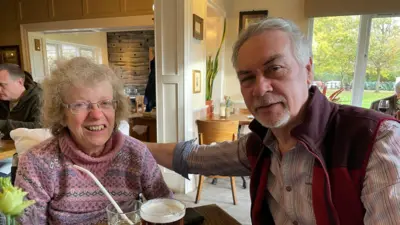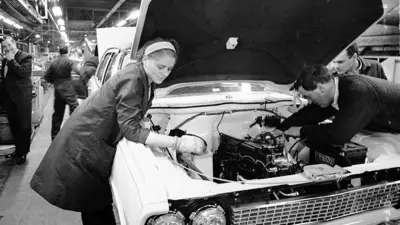We've updated our Privacy and Cookies Policy
We've made some important changes to our Privacy and Cookies Policy and we want you to know what this means for you and your data.
Transforming teachers made dames
Top Stories
Two head teachers who have turned around struggling schools and contributed to education at a national level have been made dames in the Queen's New Year's Honours.
Joan McVittie transformed two schools in deprived areas of London.
Sally Coates has overseen huge improvements at Burlington Danes Academy in west London.
Three fostering couples who have cared for more than 620 children between them are also recognised with MBEs.
Top Stories
Dame Joan, now 60, said she was "absolutely thrilled" to be singled out for her work in education and only wished her parents had been around to see her receive the honour.
She says the secret of her success in schools has been "to get a good team" and to ensure that the people around her "grow and develop".
Top Stories
'Pretty chaotic'
"It's about playing to people's strengths," she added.
She was recognised for her work in improving Leytonstone School, and then going on to transform Woodside High, in Tottenham.
She took the Tottenham school, which replaced White Hart Lane School - dubbed "the worst school in London" - from the verge of closure to an outstanding Ofsted rating in just five years.
Last year it was rated one of the top 25 most improved schools in the country for its GCSE results.
She is also rewarded for her time serving on a national body encouraging good school leadership, National College for School Leadership, and for her contribution to the Association of School and College Leaders, of which she is a past president.
Dame Sally, who has worked in teaching since she was 22, is also credited with transforming a school - this time on the deprived White City Estate in west London.
Now, 59, she took over Burlington Danes, which replaced a school in special measures, in 2008.
She said the first day she went into the school it was "pretty chaotic".
"There weren't any systems and structures, and nothing was really working," she added.
Pupils' poor behaviour and poor results was disheartening, she said, but she managed to begin the process of change by having high expectations of her pupils, and plenty of optimism and resilience.
"The thing to remember is that everyone wants things to work. The teachers want to work in a good school, the parents want the school to be good and the children want to be in a good school."
Foster families
She also recently oversaw a review of the standards expected of teachers for the government and served as a member of the committee which recently reviewed the national tests children take at the end of primary school.
About 10% of the total honours go to people for their work in education. Some 31 head teachers were recognised in all.
Patricia and Bryan Bottomley have been given MBEs for their work with children and families.
The couple have fostered over 600 children of all ages and nationalities over 40 years in the area of Hull.
They have had as many as three or four children placed with them at any one time, as well as raising six children of their own.
They have also worked for many years supporting new foster parents, and the couple have provided respite care for other foster families.
Also recognised with an MBE for their work as foster carers are Jackie and John Franklin.
Long service
They have been foster carers for over 30 years and have fostered nearly 100 children under the age of six years in Bristol.
The couple have also raised three daughters and a son whom they adopted when he was three.
They were recognised by the City of Bristol in 2011 with a long service award and are recognised as having profoundly improved the lives of children looked after by the local authority.
Anthony Hiles, and his wife Muriel, have also been awarded an MBE for their work as foster carers in the West Midlands since November 1994.
The couple are currently linked with six children and have cared for over 20 disabled children to date, offering short breaks typically comprising a few nights a month, but occasionally more, perhaps to enable a family to take a holiday.
They go beyond their duties by keeping in touch with families, listening to them and offering them advice and support.
Top Stories
More to explore
Most read
Content is not available








